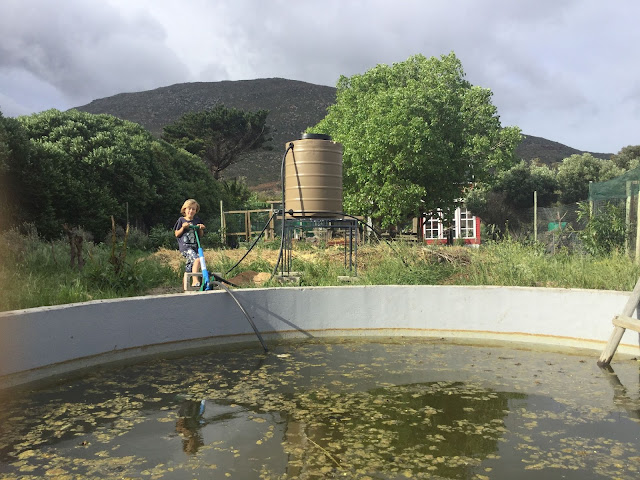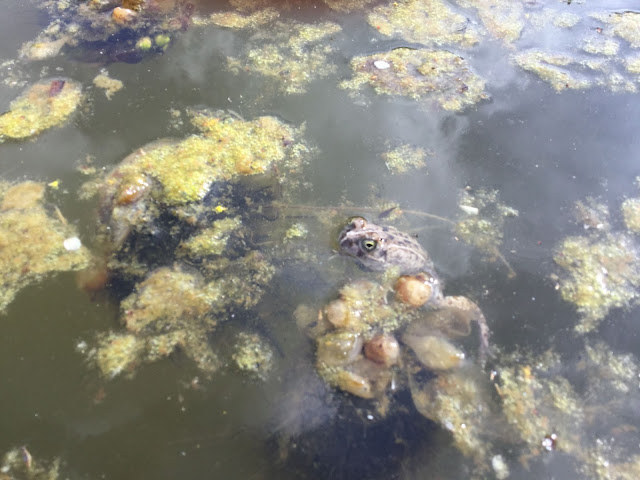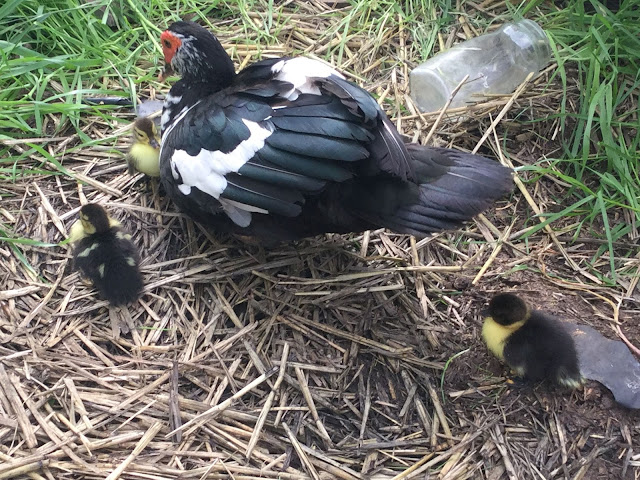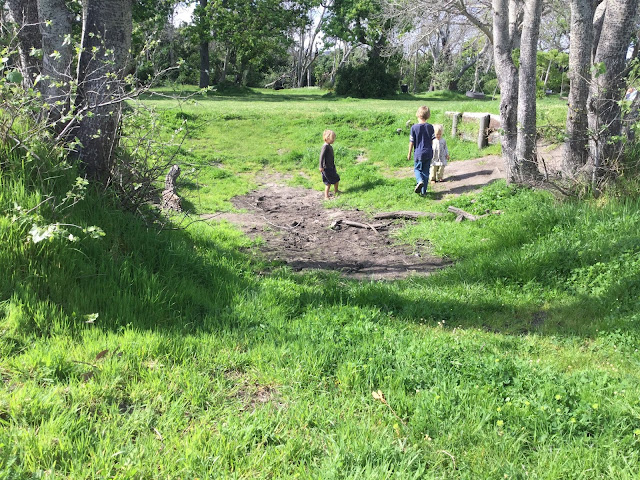We were looking back at old posts of Eli as a baby and realising I posted a lot more at that time. One reason I post less now is related to time (SO MANY CHORES!!! THREE KIDS!!!!) and not being quite sure what to post: our lives are simultaneously super different than most of our peers, on so many levels, but then you may also find us driving to buy soda at the mall. Still, I do like the idea of sharing our stories, and how we grow and change.
We still think a lot about how to live our lives and simplicity and waste and sustainability, but ironically it feels more and more hypocritical to provide how-to's the further we get into things. We do sometimes give advice to people locally, we have people visit the farm, and so on. But we live next to a township/informal settlement (you might use the term slum if you're from outside South Africa), so we surely cannot give advice on simplicity. Our neighbours are living much more simply, with much less. We cannot give advice on generosity, either... Just the constant grinding awareness that we're lucky and limited. We actually probably have more plastic waste now than we did when we were faithfully zero wasting in Boston. We produce some of our food, but not exactly a lot.
I'm not trending towards hopelessness or cynicism. We move forward slowly, knowing our form of homesteading is a new kind of homesteading, where we have choices. We are not peasants, I doubt we will ever be. We make slow progress, tired and busy, which suggests that even this yuppie form of homesteading, at least in the beginning, does not have that much to recommend it. But there's still something good in it. Tolstoy said that hard labour is our guide to meaning. The daily practice of manual labour, of farming chores, is powerfully grounding. It's humbling and we spend so much time thinking about alien trees, vegetables, chicks and the best way to kill a rooster that there's less time to be worried about other things. Not that we should insulate ourselves against worry and be passive in the face of injustice, but that change should begin at home. I hope that over time we do have ample time for raising our kids well, for leisure and deep thinking, and for finally doing those postpartum pelvic floor exercises. You know, all the essentials.
Anyway, here are some details of how we irrigate and are trying to set up things for our vegetables (our fruit trees are mainly on drip irrigation).
Drip Irrigation, local vegetables, drought
This past month, we set up drip irrigation for our vegetable garden. We have a Mediterranean climate here in Cape Town, which means the rain comes in the winter and we have almost no rain in the summer. The past two winters, however, have had different rain patterns and everyone is talking about changing rain patterns. Cape Town's catchment dams are close to empty, and there are fears about long-term/permanent drought in the region.
In the midst of this, we are interested in how to grow food with as little water as possible. I've heard the argument that it is sometimes better to transport something from where it grows naturally, rather than force it to grow in an unnatural climate. I think that makes sense to an extent-- if we're talking heated greenhouses etc. (though agriculture in
the Netherlands suggests otherwise!) In our case, we're mainly talking about irrigating (and maybe a little extra warmth from microclimates for some things). When it comes to water, we have enough rainwater storage in our reservoir from winter to get us through about 2 months of irrigation. Getting water out of the reservoir and onto our vegetable beds was beyond our physical capacity without some kind of tool, so that's what we worked on this month.
 |
Here's our irrigation system: rainwater is collected in the reservoir, then pumped into this elevated 500L tank using a handpump. It drips down through about 200sqm of drip pipe.
|
I'm by no means a pro, but wanted to share some ideas of things that might work if you're dealing with drought in a climate similar to ours. The basics are important, but require some infrastructure:
- Greywater use-- through a reedbed, can irrigate at least 3 water hungry trees (in our case, we water a banana and an apple on one side, and a walnut tree on the other side.
- Rainwater- having a means to collect roof rainwater is really important, but you need quite a lot more for a vegetable garden in summer than a 5000L tank can provide. We were lucky to inherit a reservoir on the property, and I think this is generally really helpful for extra water storage, as well as for settling out water from a wellpoint, if you're lucky enough to have a wellpoint. The drought is serious enough that some people are converting their swimming pools to natural pools, to use as a multi-purpose water supply (water storage, swimming, irrigation)
Less well appreciated (at least by me), and potentially doable for anyone, even without capital:
- I didn't fully appreciate the value of water storage in the soil before we moved to the farm. It is something I find quite remarkable now. I brought in many tons of free horse manure over the past two years and layered it onto brush piles as our attempt at hugelbeds, then layered onto those many many bags of waste hay from the nearby alpaca hobbyist. There are still some air holes and the beds still need work, but we can already grow a lot in them. Our garden also still needs irrigation, but it retains moisture very well, and we were able to grow throughout the winter without any irrigation at all, which is not always possible. I want to keep on working on improving water storage throughout the farm, so that we're able to grow with much, much less water than commercial operations. Vermicastings are a great way to save water-- we have a lot of worms going already, and hope to keep on increasing our worm farms.
- Drip irrigation provides a really good water saving solution compared to watering with a hose or sprinkler. We've set up a system where we use a small handpump to pump water out of our reservoir into a small elevated water tank, which then allows the water to drip down throughout the system using regular polypipe, connected to drip pipe. The person selling us the handpump thought we were crazy. We might be. Even without using gas or electricity, I know it's still a lot of plastic in our system-- but the idea is that it lasts many years and really saves water. The reservoir water is not enough to last us through summer, so we're also en queue to get a wellpoint, also with a handpump.
- If you set up an irrigation system: Suddenly we have all this drip pipe and it's wasteful not to have plants in the entire area, as the entire area gets watered. Eek! It's a good motivation to put a lot in, which leads me to:
- Growing from seeds really increases capacity and decreases costs. It's a skill I've tried to get better at, rather haphazardly, and one that I'm finally quite excited about. Having a dedicated space for starting seeds helps a lot, having a plan for making my own seed mix also helps (I use 1/2 sand from the garden, 1/4 compost, 1/4 coconut coir in a 25L bucket, mixed with a couple of handfuls of vermicastings). Seeds are such good value for money if you can get them going. The seed-starting process is also part of homeschooling, even though the kids don't usually enjoy planting seeds-- they watch me and play alongside me. Even though I don't think we're going to be getting most of our food from the farm for a while, we are getting closer and the kids are definitely part of the process, by being home with us.
Still to work on:
- Planning and proper rotation: although I think a lot about the garden and the farm, some things just need to be learned by doing, at least the first time around. Hugelbeds are not like growing in rows, but they're not quite like growing in raised beds either (not that I'm very competent in either of these!). Our beds are not exactly fully functional hugelbeds, either (we didn't have huge pieces of wood-- they're mainly smaller pieces). So I think figuring out how many seedlings can fit in a space, and how to rotate crops competently, might take some years of practice. I'm hoping this year's failures are the foundation for learning what works, and we're gradually putting in place more and more self-sufficient systems.
- Wind protection: we get crazy winds in February, so I'm hoping we can work on breaking the wind a bit before it hits the garden. The garden already has some protection, so it's just a matter of thinking carefully about how to improve it.
 |
| Life in the reservoir |
 |
| cat wants to make friends with chicks. |
 |
| baby girl danced into two in October. |
 |
| First artichoke |
 |
| We went on a guided tour of sandvlei...as you can tell the kids listened attentively (actually in between bouts of wild dancing, they did) |
 |
| It was all about the boat tour. |
 |
| Fluffy chicken is caring for a lot of chicks now-- 3 she hatched out herself, another 7 were gifted to her. Of those, one has died and one disappeared, sadly. still, we have 3 large layers and 5 of the fluffy bantam/silkie's left. |
 |
| In baboon news, we had to walk by a massive troop of over 50 baboons by Silvermine. Hana overcame her fear and got to really enjoy hanging out with them. It's really different being with baboons in a national park, versus being with them at your house. |
 |
| We had two rooster meals this month. Noah and Eli are more or less ok with roosters going, but they take these ritualized photos to remember them. I don't know if there's a way around rooster meals (short of not having chickens). |
 |
| container swing. |
 |
| Noah is allowed to brush Hana's hair! |



































